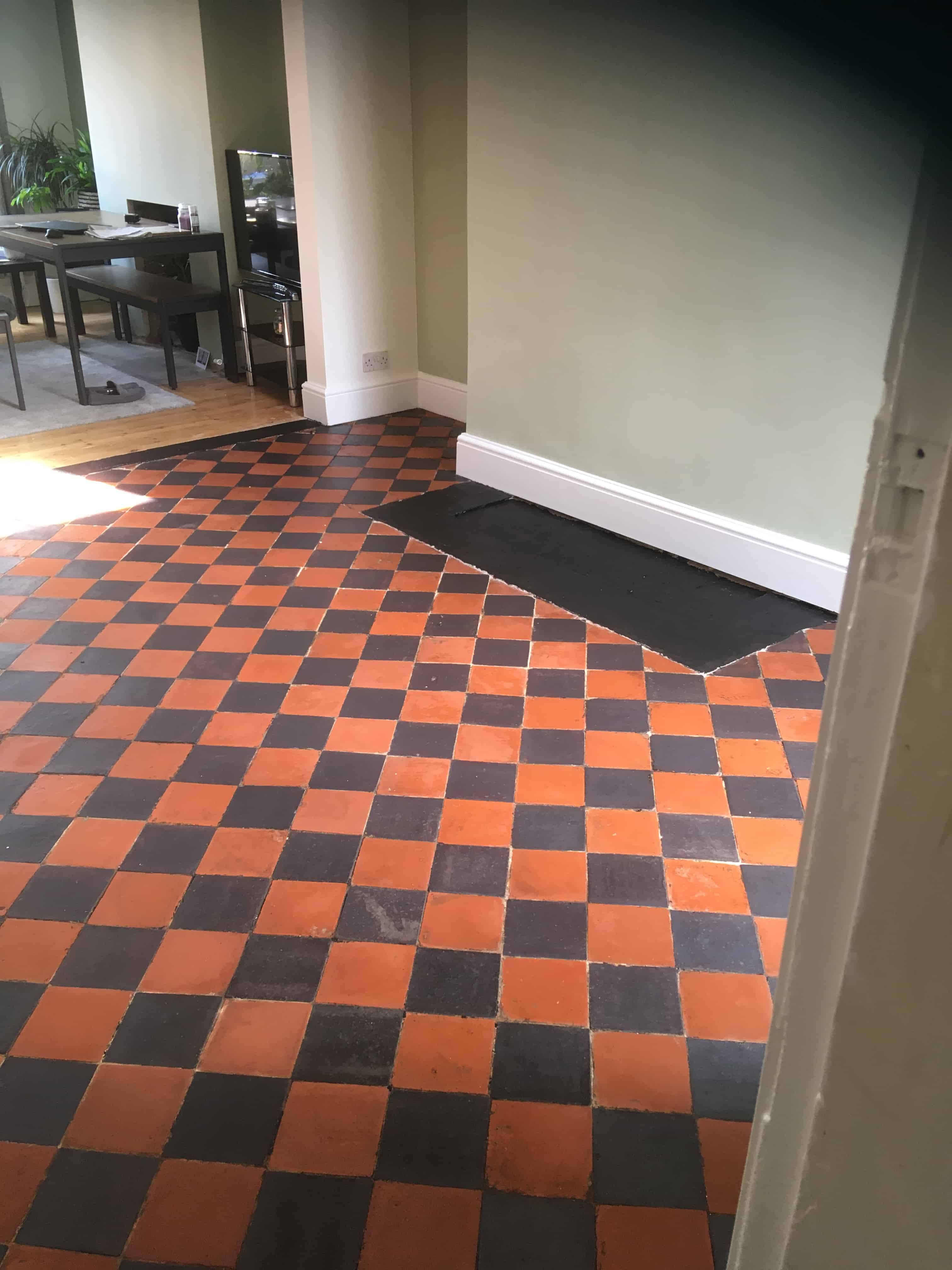These photos are from a house in
Cheadle Hulme where the owner wanted the 120-year-old quarry tiles in the dining room restored as an original feature. The tiles had been discovered when a carpet was removed and as well as being very dirty had been covered with a cement based self-levelling compound.
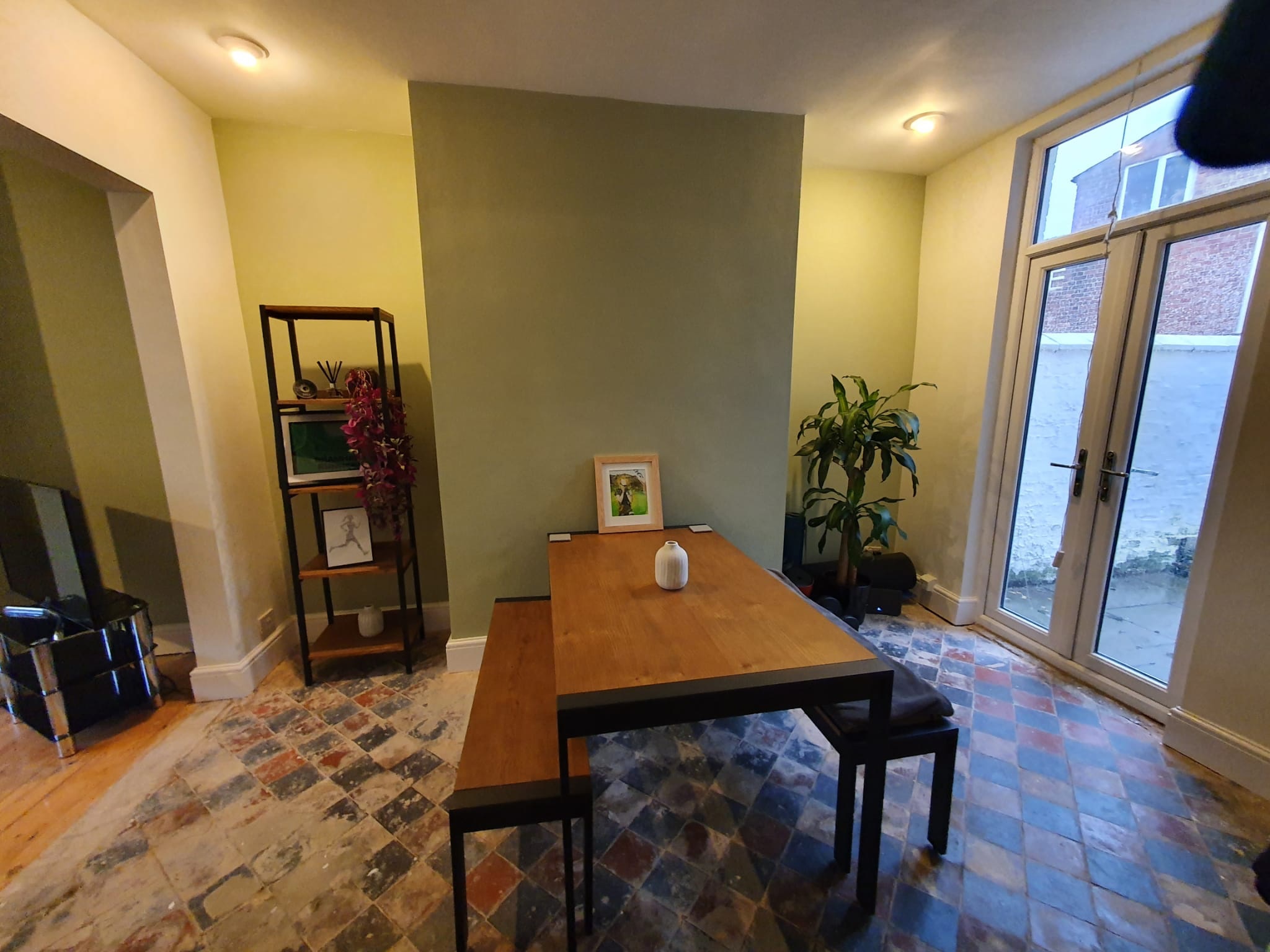
It’s not unusual to find tiles covered in self-levelling compound when a carpet or lino is fitted. It’s done to smooth out the grout depressions which otherwise would eventually show through. Fortunately, it can be removed however it does require a lot of work.
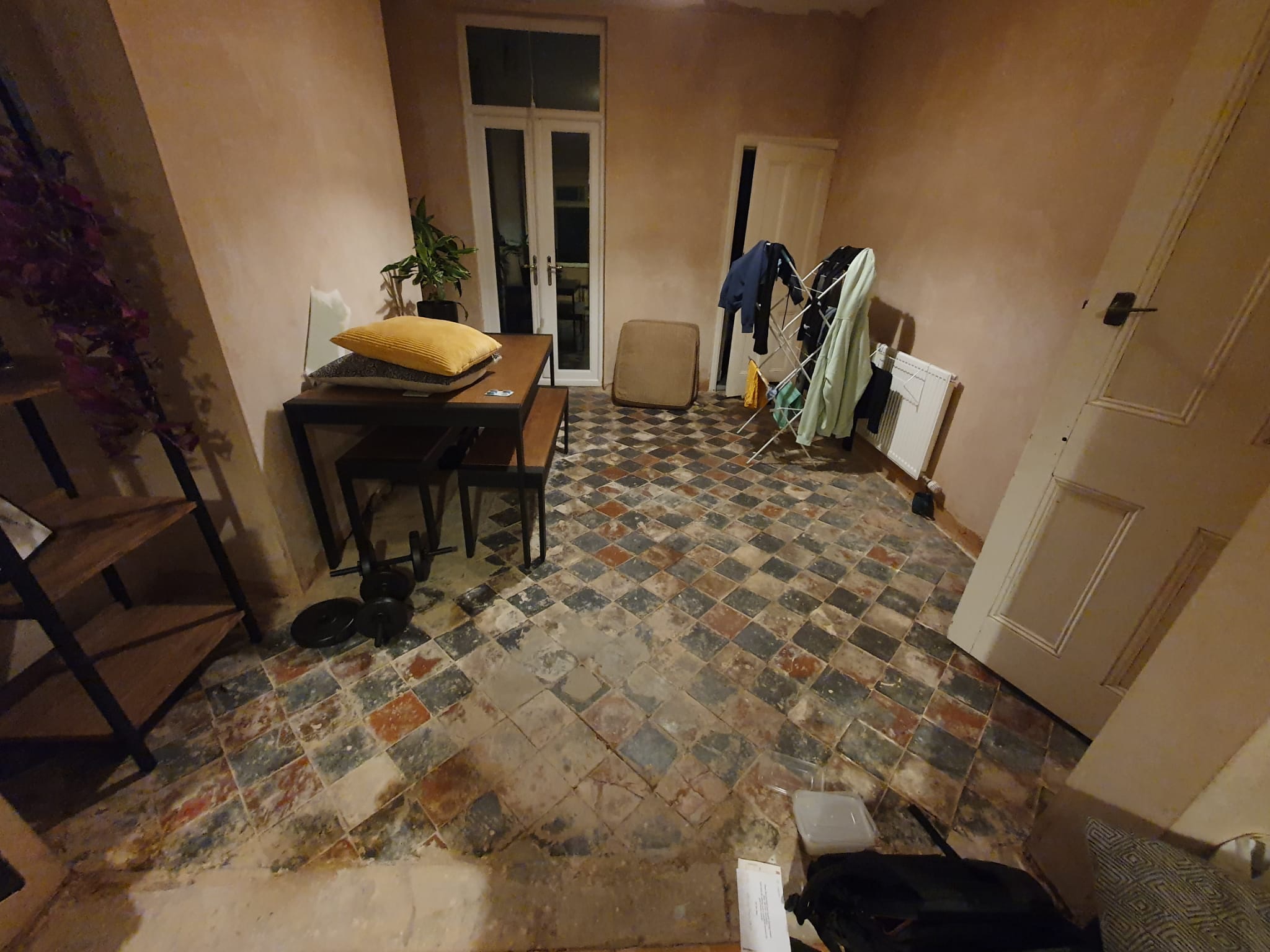
Removing Cement from a 120-Year-Old Quarry Tiled Floor
To deal with the cement I treated the Quarry tiles with neat
Tile Doctor Acid Gel and left it to get to work on the cement for ten to fifteen minutes. I then ran over the floor with an abrasive
200 grit milling pad fitted to a weighted rotary floor buffer. This action loosened the cement so it could be removed although in some of the stubborn areas I had to use a little extra force with the careful application of a hammer and chisel. I also used handheld abrasive
diamond encrusted blocks which came in very handy near the skirting boards and corners.
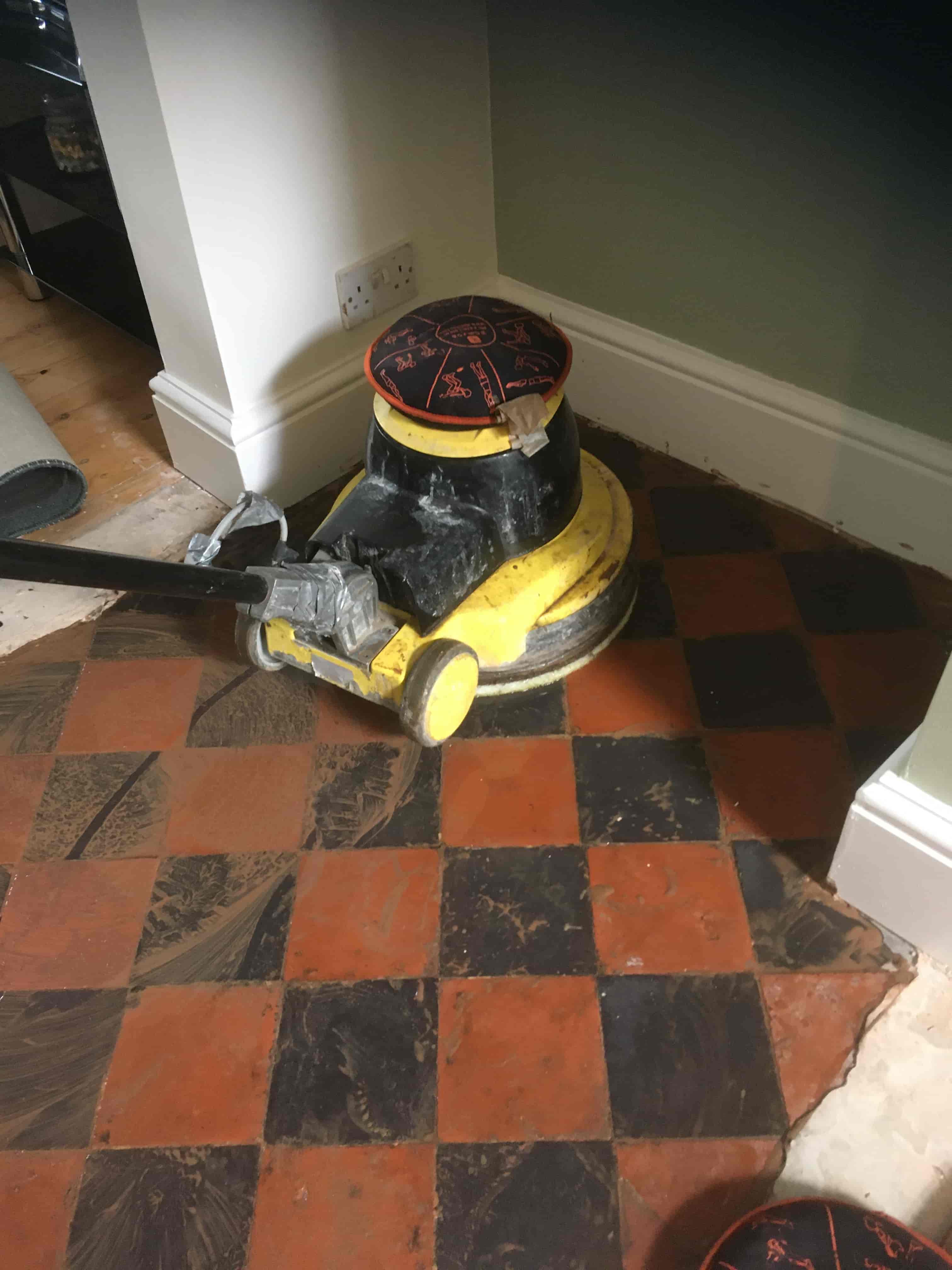
It took a lot of effort to get all the cement off the tiles, but they responded well to the treatment, and I could see the floor slowly transform in the process. A lot of water was used to provide lubrication and during rinsing for which I used a wet vacuum to extract the resultant slurry off the floor. The
Acid Gel also removes old grout smears from the tile and neutralises any efflorescent salts in the floor which can be a problem with floors of this age with no damp proof membrane.
Sealing a 120-Year-Old Quarry Tiled Floor
The floor was left to dry off overnight and I came back a few days later to check the moisture levels in the floor with a damp meter. Unfortunately, the readings were still too high to apply a sealer, so I re-arranged my return. In fact, it took weeks for the moisture level to drop below 25% which was the minimum acceptable level before sealing.
The sealer I used on this floor was
Tile Doctor Colour Grow. It's a fully breathable colour enhancing impregnating sealer that will cope with any damp moisture rising through the tile and being a colour enhancer really brought out the red and black colours in the tiles.
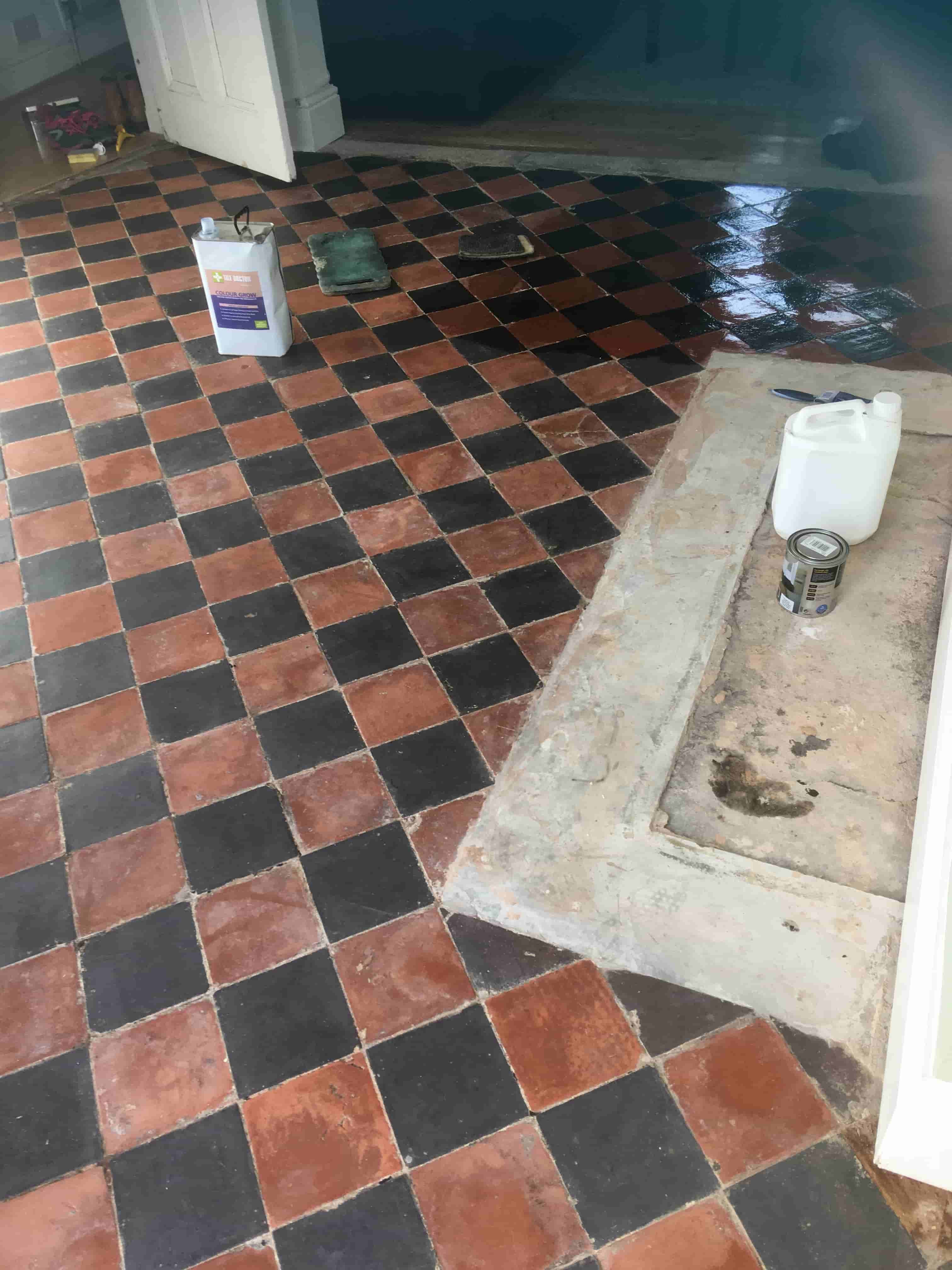
Whilst the sealer was drying, I painted the fireplace hearth with black paint, this really tied it in with the Black Quarry tiles and neatly finished off the appearance of the room. Needles to say by the time I had finished the floor it looked great, and my client was very happy with their newly restored Quarry tiled floor, so much so they took time to leave the following feedback which is always appreciated:
"Within hours of sending in an enquiry on the tile doctor website I was contacted to say that the local rep would be in touch. Within another couple of hours, Kamila got in touch. Right from the start Kamila was accommodating to suit my needs, carrying out a trial 'out of hours' to suit me. Her communication was fantastic, regularly keeping me updated. She is a lovely lady who is trustworthy. I had to leave Kamila a few times and she locked up and posted the key as agreed. I am extremely pleased with the results of my refurbished quarry tiled floor, I never thought it would come up as well as it has done."
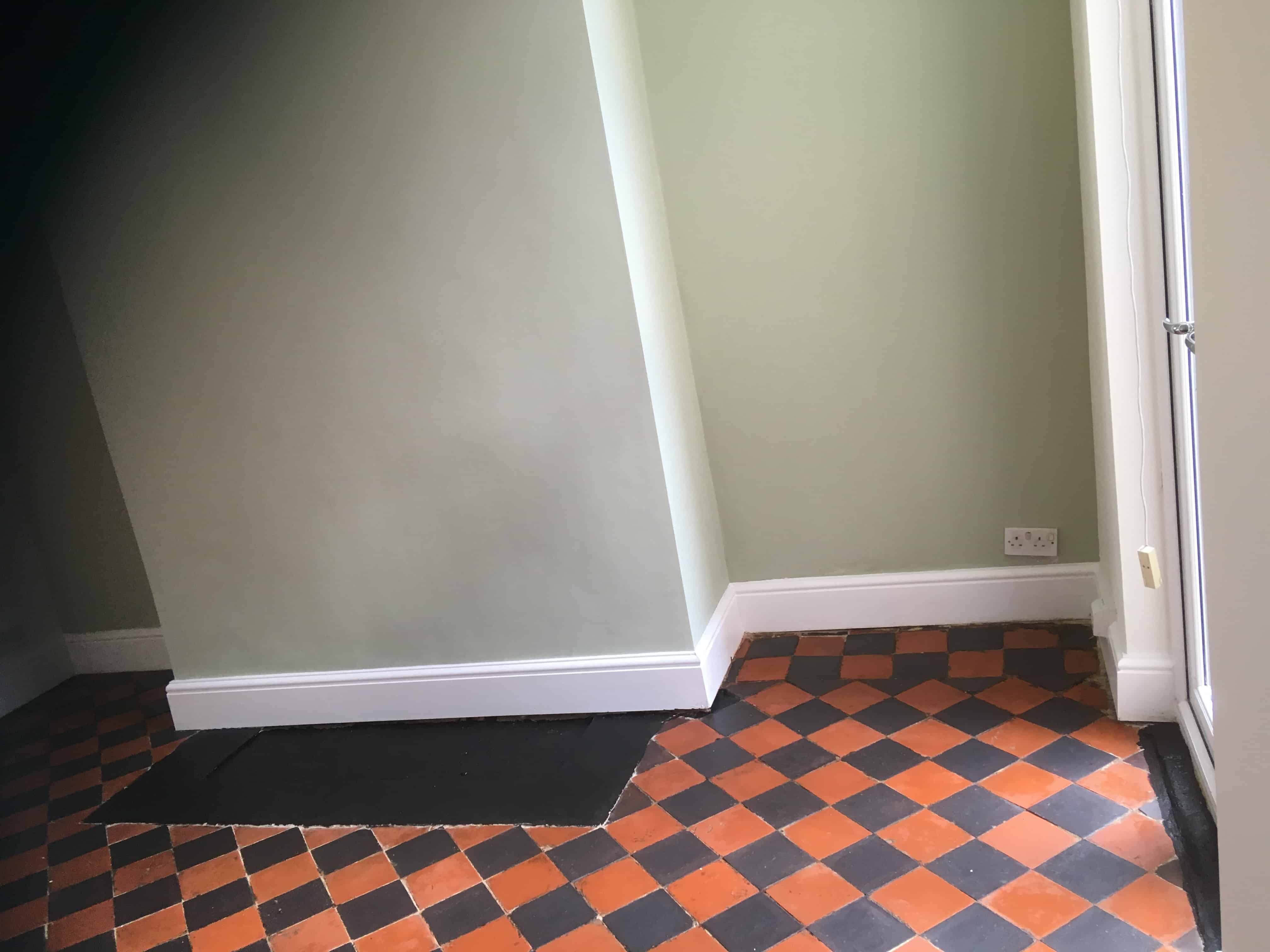
For aftercare cleaning I recommended they use the
Tile Doctor Neutral Tile Cleaner. It is pH neutral tile cleaner that will not degrade the new sealer which is important as many supermarket cleaning products are simply too strong for use on sealed tiles. (Always check the label!)





